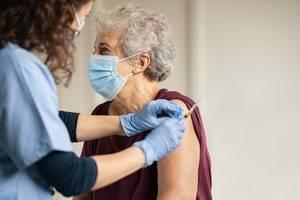Upcoming Changes To The Vaccine Injury Program Draws Attention Of National Press
 On February 4, 2021, USA Today published an article about the upcoming removal of Shoulder Injury Related to Vaccine Administration (“SIRVA”) from the vaccine injury table. We discussed this rule change, which goes into effect on February 22, 2021, in a previous blog post. You can find our blog discussing that issue here.
On February 4, 2021, USA Today published an article about the upcoming removal of Shoulder Injury Related to Vaccine Administration (“SIRVA”) from the vaccine injury table. We discussed this rule change, which goes into effect on February 22, 2021, in a previous blog post. You can find our blog discussing that issue here.
The USA Today article discusses not only the rule change impacting SIRVA, but also touches on additional rule changes put in place by Health & Human Services (HHS) at the same time, all pushed through at the very end of the Trump administration with at best, minimal support, (chiefly from HHS). There was substantial pushback from players in the vaccine injury program, including the Advisory Commission on Childhood Vaccines (ACCV), the Vaccine Injured Petitioners Bar Association, members of the general public, physicians, pharmaceutical chains, etc., and individuals that have taken their SIRVA cases through the vaccine injury program.
You can find the USA Today article here.
Overall, the likely result of removing SIRVA from the vaccine injury Table and perhaps later on from the program altogether will be to ultimately subject the vaccine administrators, like your doctor, nurse, or local pharmacist, to being sued by impacted patients rather than having the injury processed through the vaccine injury court. Having medical professionals subject to suit will inevitably impact not only the medical provider/patient relationship in cases where the patient’s own physician or healthcare provider administers the at-issue vaccination, but also will likely make it more difficult for an individual to actually secure compensation for their injury.
Among the drawbacks of filing a case in the injured person’s local court system is the length of time for lawsuits to work their way through the local court system compared to processing the case through the vaccine injury court where the players are more versed in the scientific issues and the processes less adversarial. Another major issue for vaccine-injured people will be the need to cover the associated legal fees of a local court case, versus the vaccine injury program where legal fees are covered by the program. These two factors alone are likely to reduce access to compensation for many individuals injured by vaccination.
Finally, these changes are taking place in the context of the rollout of the Covid-19 vaccine, the largest mass vaccination effort seen in decades. Reducing the access of the vaccine injured to compensation is, to say the least, remarkably poor timing and will undoubtedly cause some individuals to be mistrustful of undergoing vaccination at the exact time when, from a public health perspective, trust in the government’s vaccination programs needs to be at its highest.






